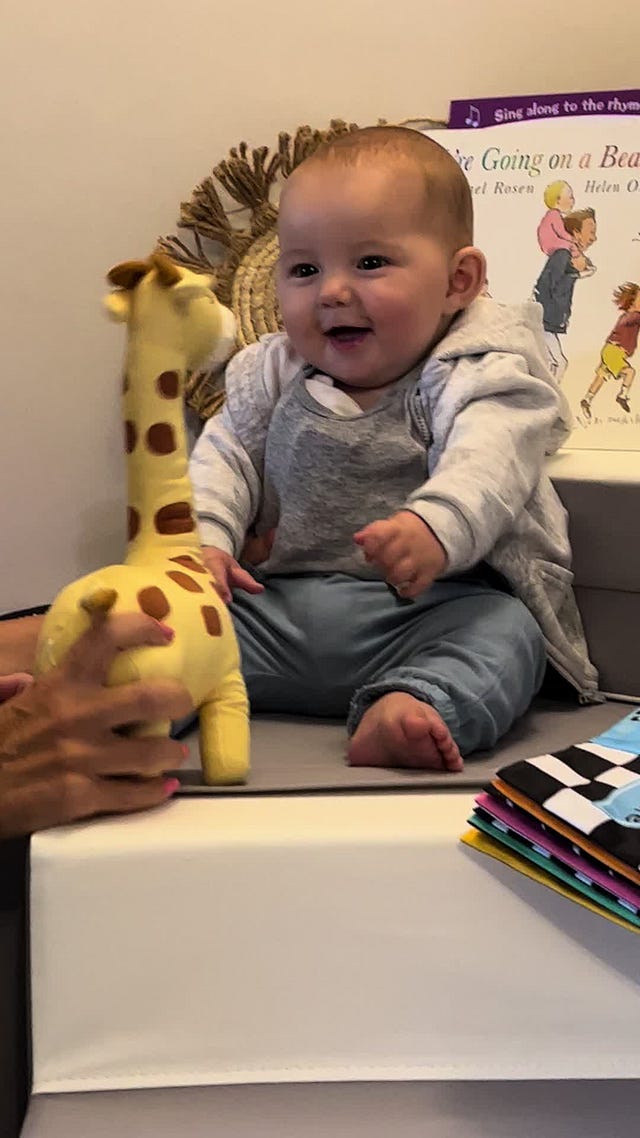Midweek Bonus: Learning From The Joy of Children
Come for the baby giggles, stay for the policy
Hello!
Now that there are more paying subscribers (thank you!) I’m going to start rewarding your support by sending out a paywalled post every week. Don’t worry, my main Friday post will always remain free for everyone.
This Wednesday I’m proud to present a guest post by Mark Swartz, a journalist who cares a lot, as I do, about childhood. He writes for Early Learning Nation and the Stanford Center on Early Childhood about efforts to improve early care and education. He lives in Takoma Park, Maryland, with his wife and two children.
He interviewed Dan Wuori, who has built a massive online following sharing ADORABLE videos of babies and young children, complete with fascinating, research-based commentary:
For your baby, laughter conveys much more than just “I find this funny.”
before babies can speak conventionally, they begin laughing - making it one of humankind’s earliest and most important forms of communication. And according to Caspar Addyman - a British researcher who specializes in baby laughter (and whose job I will now envy until the end of time), laughter is not only a signal that your baby is feeling relaxed and comfortable - but also that they are finding real pleasure in the company of others. In fact, Addyman’s research suggests that - exposed to the same stimuli - babies are up to eight times more likely to laugh in the presence of another child or trusted adult. That’s because laughter is fundamentally social. Think of it as your baby’s way of saying, “I’m enjoying our connection.” This giggly little one was shared to TT by gemandroe.
Wuori’s new book The Daycare Myth: What We Get Wrong About Early Care and Education (and What We Should Do About It) makes a number of stark and unsettling claims about the nation’s child care non-system.
"American public policy has been structured around the premise that child care is somehow separate and distinct from education."
"Our systems have long been designed with the interests of parents—and not children—in mind."
And yet Wuori’s social media posts mainly comprise children being adorable on video. The New York Times celebrated this side of Wuori in March. In speaking to Wuori, I set out to reconcile the policy expert with the social media presence.
Keep reading with a 7-day free trial
Subscribe to The Golden Hour: climate, children, mental health to keep reading this post and get 7 days of free access to the full post archives.









